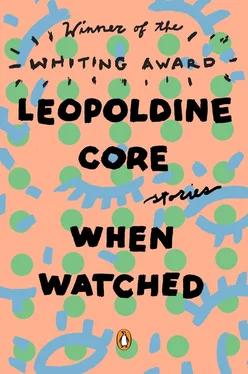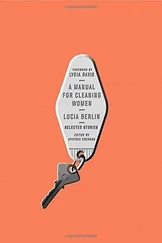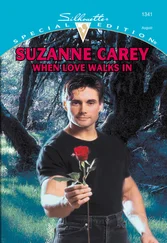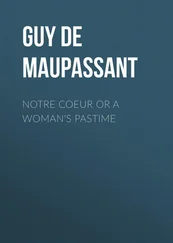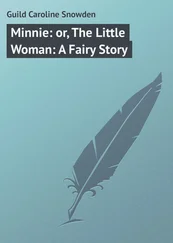He calls the woman he’s dating and she comes over. He regrets having called her. Not because he dislikes her. Because he has now realized that he wants to be alone.
She guides him to his bed and they sit down. He doesn’t want to have sex. He makes that very clear. Then he announces that Shirley thought she had been a cat in a past life. “Because she loved cats,” he says. “I couldn’t be nice to her when she said stuff like that.”
The woman smiles patiently. When it has been quiet awhile, she says, “I had a friend who thought he was a passenger on the Titanic .”
“What an idiot,” he says instantly.
She stares at him.
“That’s like saying I was a pharaoh in Egypt,” he says.
She laughs.
“What a mundane mind,” he says.
“He wasn’t an idiot,” she smiles. “He just thought he knew what people wanted to hear.” She looks into her lap. “And the truth is that a lot of people do like hearing that sort of thing.”
“What people?”
“Ordinary people.”
He nods. She rubs his leg and stares into his eyes. He doesn’t like it. He moves his gaze to a gray corner of the room.
“She was so miserable,” he declares. “All the fucking time. I think she wanted to be really successful or famous or something. But she couldn’t even hold a job.”
“That’s the thing about being young,” she says. “You have something the world wants but the world doesn’t know it yet.”
This gets his attention. “I don’t know if Shirley had anything the world wanted.” He sighs. “She kept changing her mind. It’s like she died of vagueness.”
They lie down in their clothes and she holds him tightly. He feels restless and like an alien. He feels that he misses someone. He thinks it must be someone he used to date and wonders who. But he realizes that it is no single person. Because he has felt this brand of alien his whole life. Each new relationship frames it a little differently, he thinks.
Then he thinks back on his mother’s voice over the phone. What she said at the end of their conversation was “She should be in a coffin.” Then, “Your father wants an urn.” He feels disgusted. He thinks it sounds like his parents are debating how to serve his sister to the family, how to roast and season her body. And all for the occasion of their grief, which is more an embarrassed sense of duty.
The truth is that he’s hearing things. The room is quiet but there are several voices competing in the sewer of his thoughts.
He can’t tell if it’s Shirley or a woman he dated or one he’s never met but a woman in his head is screaming and there’s a laugh in her voice. Maybe someone’s chasing her, trying to tickle her, he thinks.
He also hears what some gum on the street might hear during a storm, shoes and a million raindrops coming down like spankings.
Then he hears a dog alone. A dog in a car, barking its heart out.
Dawn woke up with a fever. It had snowed and the window poured with brutal white light. She pulled the blanket up over her shoulders, squinted in agony, then struggled into her slippers and shuffled to the kitchen.
Laurel sat reading the paper, sipping coffee from a Smurf mug. She wore what she always wore, a 1960s school uniform, gray stockings, and black penny loafers. It solved the problem of what to wear, she said. “Because this is always the right thing to wear.” Laurel had big dark eyes and a giant head. Her body was quite small by comparison and from far away the disparity made her look like a child. But up close, she looked every bit of her twenty-five years and even older. Laurel’s face was shadowy and broken down from years of chain-smoking and binge drinking. When men walking behind her shouted lewd things on the street, they were alarmed at who they saw when she turned her head. Laurel joked about it. She said it was a gift, her weather-beaten face. She said: “The world is a scary place for little girls.”
“I think I have a fever,” Dawn said, clutching her skull with both hands.
“So stay home,” Laurel said, not looking up from her paper.
“I can’t.”
“Why?”
“I just can’t.”
Laurel looked up, irritated. “You’re not an animal.”
“What does that mean?”
“If you were an animal you’d have to push the cart no matter how you felt.”
“But I am an animal. I have to push the cart.”
Laurel glared.
“I can’t lose the money.”
“I’ll lend you the money.”
Dawn stared into space. “Fine,” she said and walked back to her room. But once she heard Laurel leave, she got back out of bed and took two aspirin, then dressed and went to work.
Outside she watched the white of her breath. She passed a bum in a Santa hat, then a determined-looking blonde with a shopping bag. Just past eleven a.m., the Lower East Side was already crawling with shoppers of a particular sort. People with money. Dawn walked stiffly, peering at them. She had grown up in the neighborhood and felt increasingly like an outsider. Her rent-stabilized apartment was one of a remaining few and she joked that it was her inheritance, a shaky one. Her mother had left it to her when she moved to Los Angeles and Laurel had lived there with her ever since.
Dawn worked at a gift shop just blocks from the apartment. The awning was pink and dirty. It read SMALL WONDERS in two-foot black letters. The store was kitschy and cramped, shelves packed with a rainbow of plastic miniatures and gag gifts: eight balls, Kewpie dolls, and Jesus bobble heads, along with depressingly retro East Village — themed goods like CBGB T-shirts and mugs made to look like the iconic Happy to Serve You coffee cups of the nineties. It made Dawn grimace to sell these fragments of her past. After a few snide comments, she had been stationed permanently at the back of the store, behind a long glass case featuring the higher-end goods: watches, jewelry, and cuff links, mostly.
The other girl who worked there didn’t say anything when Dawn came through the door, nor did she look in Dawn’s direction. She was tall and somewhat beautiful the way still and quiet people can be. Her name was Sylvia and her quietness was a radiant sort, one flaming with anger. Dawn forgot she was there for long stretches of time. Then suddenly Sylvia would speak.
“You have a really bad memory,” she said when Dawn couldn’t remember the price of a ceramic gnome. Sylvia stood with her arms crossed, watching Dawn’s face squirm.
Sylvia was right. Dawn couldn’t retain any of the prices. Nor could she answer anyone’s questions about the merchandise. Did the watches have warranties? Were all the clocks made in China? She had no idea.
But Dawn didn’t believe she had a bad memory. Not really. She just had a way of protecting her mind from all the boring details of daily life. If something didn’t leave a blazing impression, it was immediately ejected from her cruising brain.
Her curiosity was reserved for more captivating subjects, like all the customers in their hats and gloves, shuffling around in a grabby trance. She loved watching them. She loved that it was part of her job, monitoring everyone to see if they needed help or if they were stealing. It seemed there was no other place where this sort of staring was acceptable.
Christmas was a few weeks away but still the customers dawdled, browsing to no end. “It’s like a petting zoo for capitalism,” Dawn smirked. But Sylvia only glared in return, her arms tightly crossed. Dawn’s smile faded. She was parked in her usual spot behind the glass case and the aspirin was wearing off. She stood perspiring under the hot white lights, her hair getting shiny and limp.
Читать дальше
